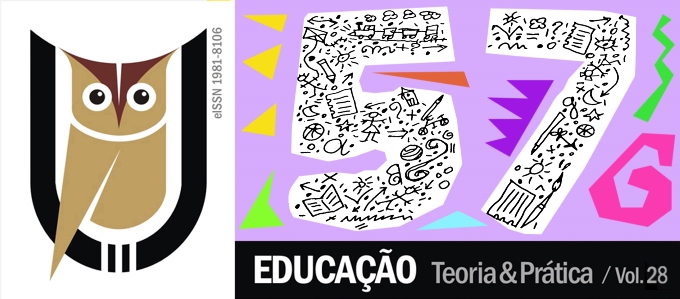EDUCATION OF YOUTH AND ADULTS AND SCHOOL DROPOUT: ANALYSIS AND PROPOSAL
DOI:
https://doi.org/10.18675/1981-8106.vol28.n57.p23-40Keywords:
Evasão escolar, situação social, EJAAbstract
This article is a research result that aimed to approach the scholar evasion causes at the EJA (Youth and Adults Education). Analyzing the statistical data obtained from the students´ answers, pedagogical strategies that can be applied at the scholar environment are highlighted, focusing on the student permanency at this formal educational program. The research, made through questionnaires as a methodological tool, was directed to the students who attended classes at State Center for Basic Youth and Adults Education – CEEBJA, a school located in a city in the countryside of Paraná. The results showed that, despite the several causes that justify the high index of evasion, there is, on the other hand, great interest of the student in concluding their formal studies. So, considering the collected data, for the educational professional that works with the EJA modality, new actions are still important, adapting and reviewing old behaviors to improve the educational process at the scholar environment and, consequently, the EJA´s student permanency at school. Keywords: Scholar Evasion. Social Situation. Educator. EJA.Additional Files
Published
How to Cite
Issue
Section
License
Authors who publish in this journal agree to the following terms:
a) Authors assign copyright to the journal, with the work simultaneously licensed under the Creative Commons Attribution License that allows sharing of the work with acknowledgment of authorship and publication in this journal.
b) The policy adopted by the Editorial Committee is to assign copyright only after a period of 30 months from the date of publication of the article. After this time, authors interested in publishing the same text in another work must send a letter to the Editorial Committee requesting the release of the assignment of copyright and wait for a response.
c) This journal provides public access to all its content, since this allows greater visibility and reach of published articles and reviews. For more information on this approach, visit the Public Knowledge Project, a project that developed this system to improve the academic and public quality of research, by distributing OJS as well as other software to support the public access publication system to academic sources. The names and email addresses on this website will be used exclusively for the purposes of the journal and will not be available for other purposes. This journal provides open any other party  This work is licensed under a Creative Commons License
This work is licensed under a Creative Commons License











